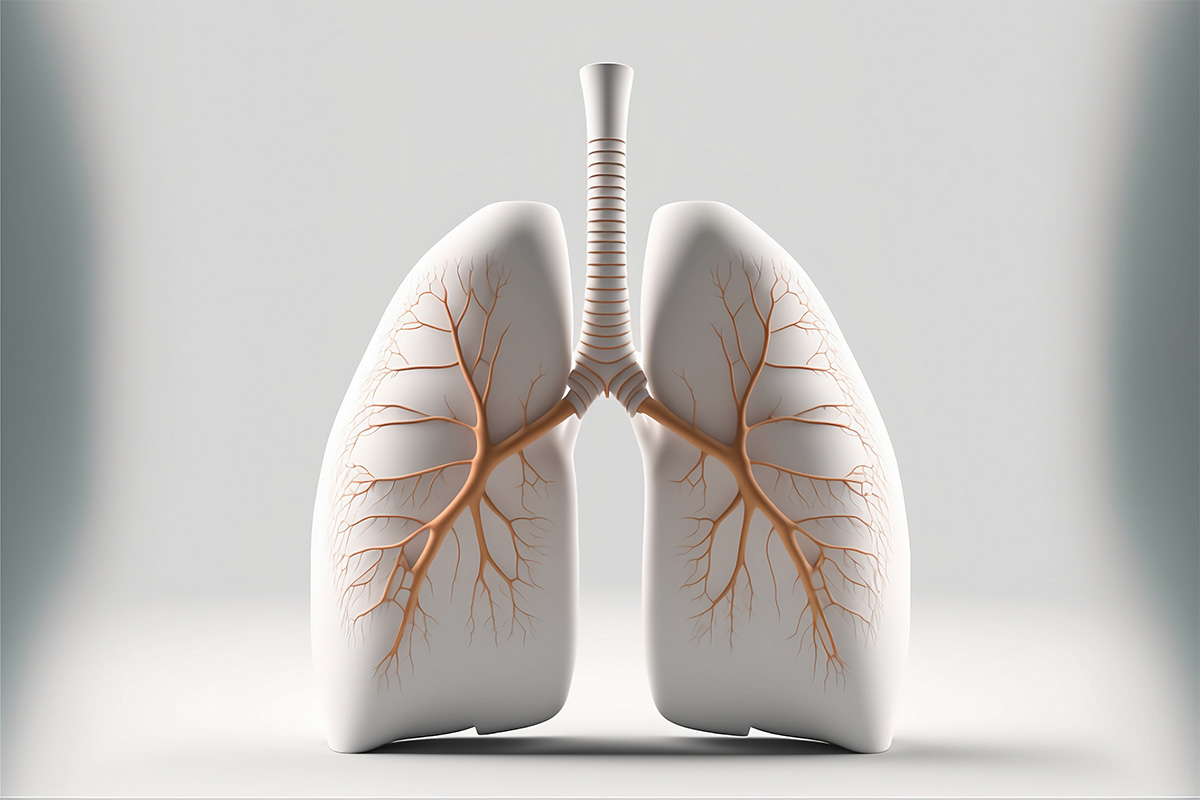Exploring the Link Between Pneumonia & PD

According to a 2020 study, pneumonia is the leading cause of death and the most common reason for hospital admissions in people living with Parkinson’s disease.Understanding the connection between Parkinson's disease and pneumonia, including its causes, treatments, and the latest research, is vital for improving care and outcomes for individuals living with PD.
Connection Between Parkinson's Disease and Pneumonia

Parkinson's disease (PD) is a progressive neurological disorder affecting movement and causing symptoms like tremors, stiffness, and bradykinesia (slowness of movement). As the disease advances, it can lead to a range of complications, one of the most serious being pneumonia.Pneumonia is an infection that inflames the air sacs in one or both lungs. It can be particularly perilous for individuals with Parkinson's disease due to the various factors related to PD that increase susceptibility to respiratory infections.The link between Parkinson's disease and pneumonia is primarily rooted in the motor and non-motor symptoms associated with PD that compromise the respiratory system. Historically, chronic immobilization and difficulties with swallowing (dysphagia) put people living with PD at a higher risk of pneumonia, particularly aspiration pneumonia.Individuals with Parkinson's often experience dysphagia due to weakened throat muscles. This increases the risk of aspiration — the inhalation of food, liquid, or saliva into the lungs — which can lead to aspiration pneumonia, a specific type of pneumonia.Further, the reduced mobility and ability to cough effectively in people with PD can prevent the proper clearance of respiratory secretions, elevating the risk of developing aspiration pneumonia.
Causes of Pneumonia in Parkinson's Disease

Pneumonia in people living with PD may be triggered in several ways, most relating to the motor symptoms associated with Parkinson’s disease.
Aspiration due to Dysphagia
Swallowing difficulties make aspiration one of the leading causes of pneumonia in people living with PD. Dysphagia typically occurs in the later stages of PD and is reported to increase in severity each year after diagnosis.Regular assessments by speech and language therapists can help in managing dysphagia, but the risk remains significant.
Impaired Cough Reflex
PD can weaken the cough reflex, making it harder to clear the lungs of harmful particles, including bacteria and viruses.
Decreased Mobility
Reduced physical activity can lead to a weaker immune system and poorer overall lung health, making it easier for infections to take hold.
Medication Side Effects
Some medications used to treat PD may cause drowsiness or sedation, increasing the risk of aspiration.
Treatments for Pneumonia in Parkinson's Disease

Treatment for pneumonia in people with PD typically involves a combination of approaches tailored to the individual's symptoms and the severity of their condition.
Antibiotics
Bacterial pneumonia, such as aspiration pneumonia, requires antibiotics, which must be chosen carefully to avoid interactions with PD medications.
Physical Therapy
Respiratory physiotherapy can help improve lung function by teaching exercises to strengthen the muscles involved in breathing and coughing.
Swallowing Interventions
Speech and language therapists can provide strategies to reduce the risk of aspiration and help prevent aspiration pneumonia, such as modifications to diet texture or swallowing techniques.
Adjustment of PD Medications
In some cases, adjusting PD medications can help manage symptoms contributing to pneumonia risk under the guidance of a neurologist.
Research Directions

Recent research into the connection between Parkinson's disease and pneumonia has focused on prevention, early detection, and management strategies. Studies are exploring:Vaccination Strategies: Research into the effectiveness of vaccines, such as the pneumococcal and influenza vaccines, in reducing the incidence of pneumonia in people living with PD.Innovative Therapies: The development of new therapies aimed at improving swallowing function and reducing aspiration risk.Early Detection and Monitoring: The use of technology and clinical tools for the early detection of swallowing disorders and respiratory issues in people living with PD.Understanding Mechanisms: Investigating the underlying mechanisms linking PD to increased pneumonia risk could lead to targeted interventions.
Understanding Pneumonia & PD: An Ongoing Effort

The connection between Parkinson's disease and pneumonia represents a significant challenge in the management of PD.The increased risk of pneumonia is due to a combination of factors inherent to Parkinson's, including difficulties with swallowing and impaired cough reflex. Treatment approaches are multifaceted, aiming to treat pneumonia when it occurs and address the underlying risk factors associated with PD.Ongoing research is critical to developing more effective prevention, detection, and management strategies, aiming to improve quality of life and outcomes for individuals living with Parkinson's disease.PCLA is dedicated to supporting Parkinson’s research and providing resources to our community. Check out our upcoming Let’s Talk Parkinson’s feature on Choking and Swallowing Issues with Parkinson’s with speech-language pathologist Julia Nicholls. This is a free online event thanks to our sponsors Boston Scientific, Acadia, and Abbott.Register for the May 10th LTP event on Choking and Swallowing Issues here.
Donate Today,
Change Lives Forever
PCLA is powered by generous contributions from people like you.
Please consider donating today so we can continue to provide critical support to those impacted by Parkinson’s.

